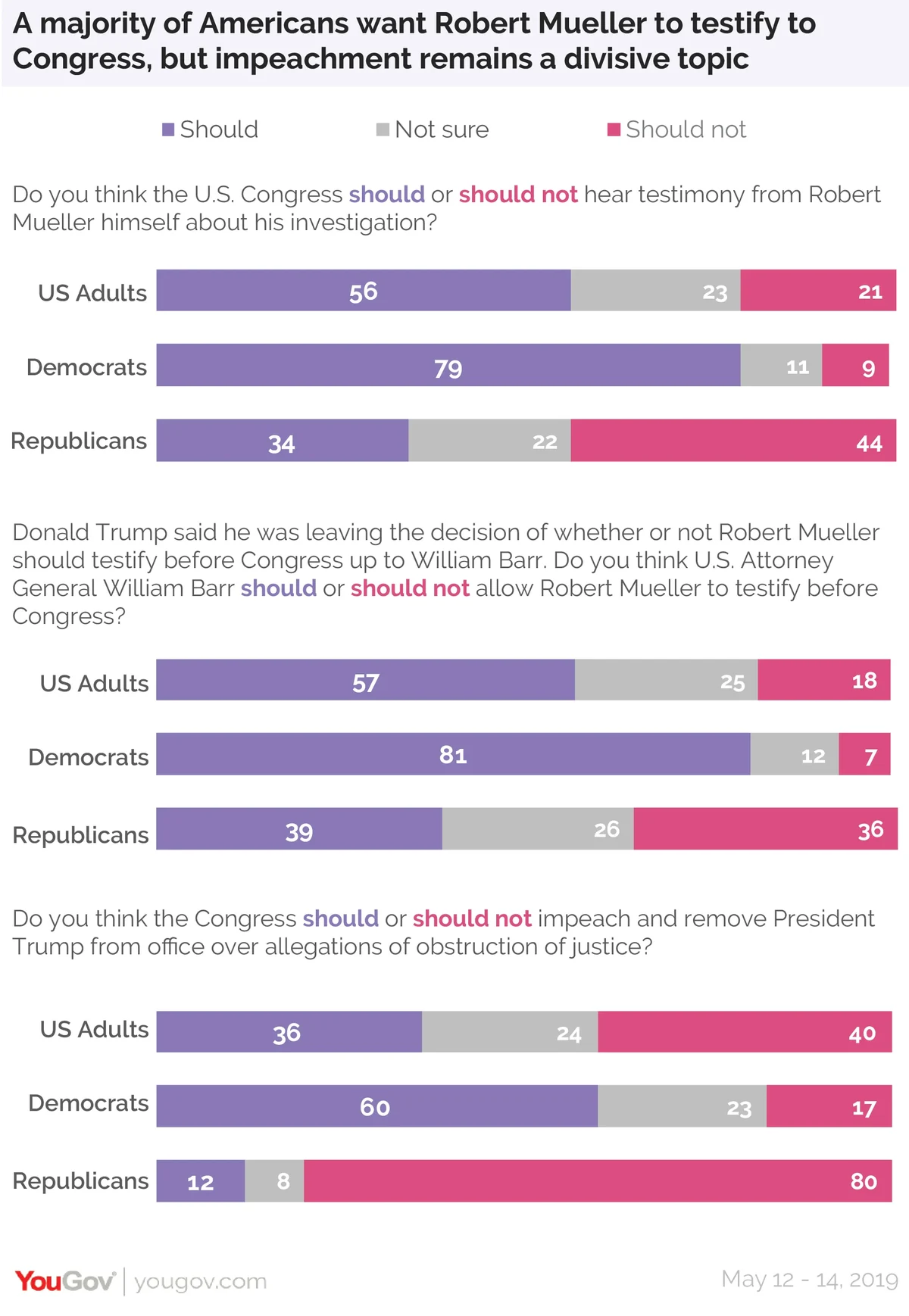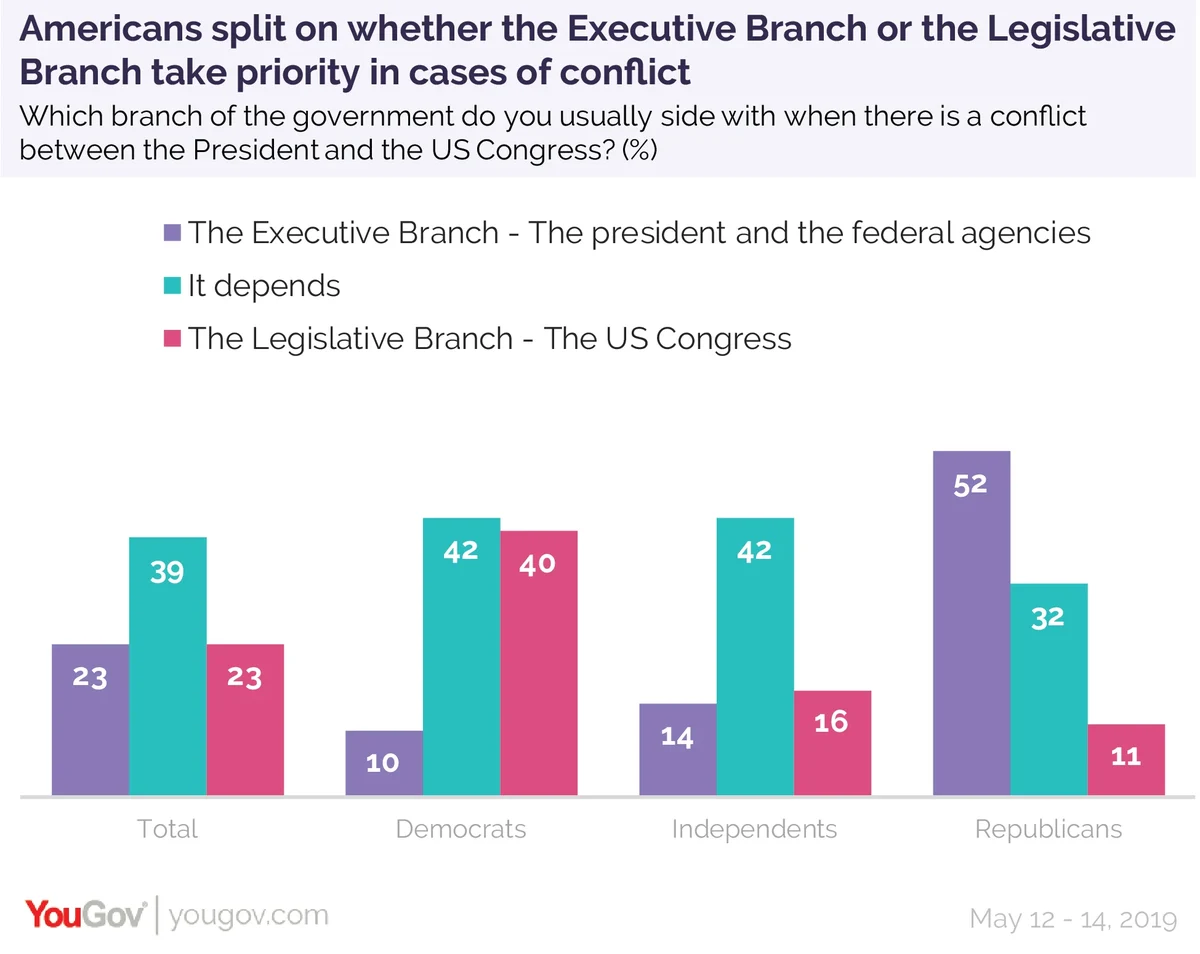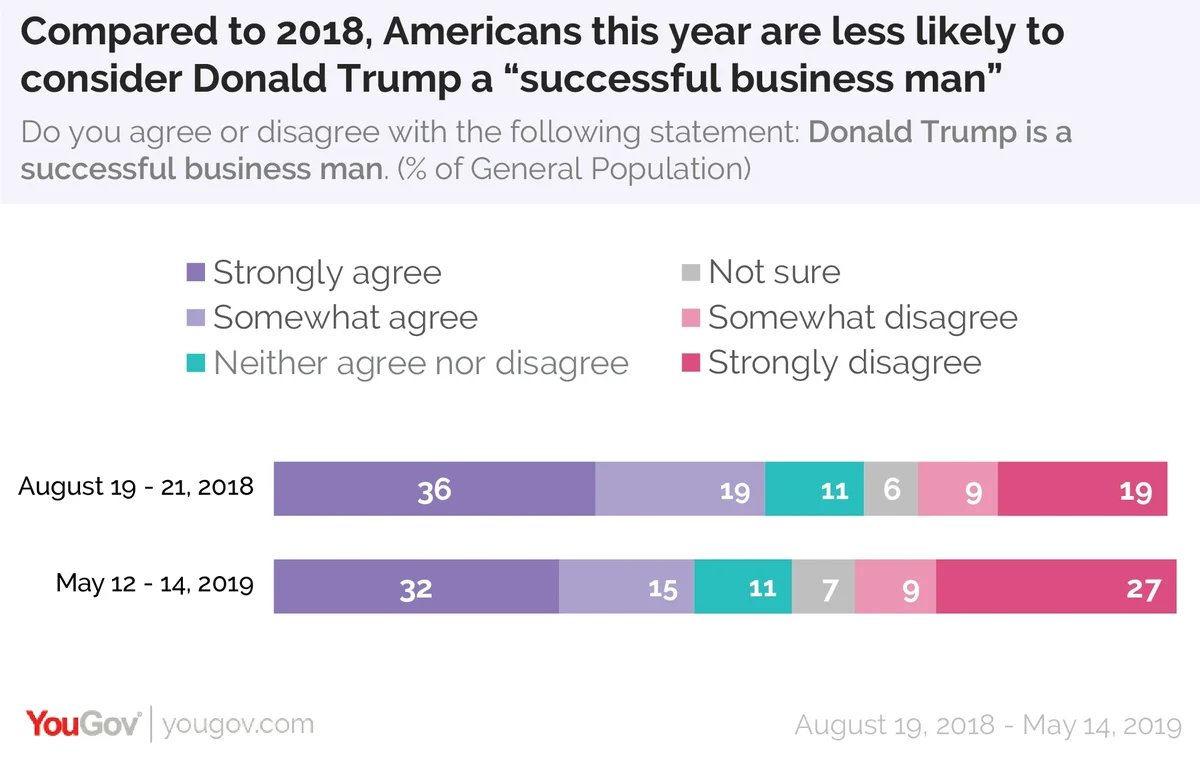Nearly two-thirds of Republicans don’t want any more hearings on the Russia investigation
Americans from both parties see value in Congressional investigations.
Why else would 71% of Republicans in the latest Economist/YouGov Poll agree it was appropriate for Congress to conduct the Iran-Contra investigation during Republican Ronald Reagan’s Administration? Or why would the same percentage of Republicans say it was appropriate to hold hearings about possible obstruction of justice by Richard Nixon during Watergate?
More than three in four Democrats find investigations of attacks on US diplomatic locations – specifically Benghazi – appropriate, and 60% of them believe it was appropriate for Congress to investigate President Bill Clinton on charges of perjury and obstruction of justice in 1998.
Well, those are historical events. Opinion is quite different today when dealing with Congressional investigations of the sitting President and his Administration. On a host of questions related to investigations of Russian interference in the 2016 presidential election, most Republicans simply say they want them to stop.

Nearly two-thirds of Republicans don’t want any more hearings on the Russia investigation, and a plurality believes Congress should not hear testimony from Special Counsel Robert Mueller (though fewer believe that Attorney-General William Barr should prevent Mueller from testifying). More than seven in 10 Republicans don’t want hearings on possible obstruction of justice by President Donald Trump. But on all these questions, Americans overall want hearings.
However, America is not ready for Congress to begin impeachment hearings. Just 36%, slightly over a third, would support that. Democrats are much more interested. They favor impeaching and removing the President from office by 60% to 17%.
Just Tuesday, the Senate Intelligence Committee came to an agreement with Donald Trump, Jr., to hear his testimony in closed session. Republicans opposed having Trump, Jr. testify again, 59% to 26%, though the public overall wanted him to testify before the Republican-chaired committee by nearly two to one.
Americans see the President holding an advantage in the battle between the legislative and executive branch. That advantage is particularly strong among Republicans: A majority claim they usually side with the President when there is a conflict with Congress. Democrats are more likely to side with Congress, but the legislative advantage with them is smaller because Democrats control only one chamber.

Independents give neither branch a vote of confidence.
Divided Congressional control makes it very difficult for many Democrats to “trust” Congress. 47% of Democrats say they have a great deal or a fair amount of trust in the legislative branch, but the same percentage of Democrats give that level of trust to the Judiciary in general. Among Republicans, there is no contest: 81% have at least a fair amount of confidence in the executive branch, while just 30% of Republicans have that level of confidence in Congress. Even more Republicans express trust in the Executive than the 71% who give the Judiciary a fair amount of trust.
There is little consensus on which branch is the most important or the most powerful.
One more Executive-Congressional conflict comes on the President’s taxes. Unlike other candidates in recent years, the President refused to release his tax returns during the campaign, and has continued to refuse since taking office. By 55% to 31%, Americans think he should release his tax returns.
Congress can subpoena anyone’s tax returns from the Internal Revenue Service, a federal agency. By 47% to 30%, Americans want Treasury Secretary Steven Mnuchin to comply with the subpoena (Republicans disagree on both questions).
On the tax front, a somewhat different set of returns may have tarnished the President’s image as a great businessman. The New York Times reported that the President cited losses of $1 billion between 1985 and 1994 in his tax returns. Less than half the public now describes the President as a “successful business man.” As recently as last August, a majority agreed that he was one.

In this week’s poll, after the question about the President’s business acumen, respondents were told about the tax losses. They were then asked if the President’s use of legal accounting procedures to pay no taxes indicated that he was a good businessman or a bad businessman. The verdict on this question, 40% to 28%, was that that action meant he was a “bad” businessman, though a third had no opinion.
Read the full toplines and tables results here
Photo: Getty








